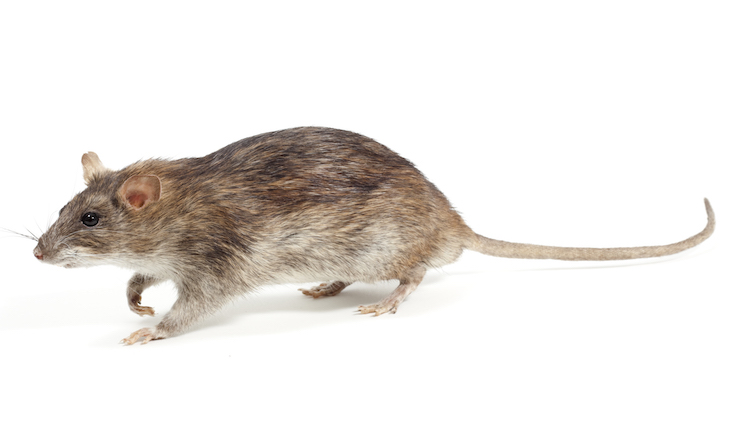The extermination of every single one of South Georgia’s rats, for the sake of its birds, was confirmed at a press conference in London last week. A summer of searching with dogs and bait two years after the last poison was deployed turned up no sign of a rodent. This achievement is remarkable, not least because it was deemed impossible right up until it was achieved. It was a barmy idea, way out there, crazy, bound to fail. Like lots of other ideas. Maybe there’s a lesson here.
The island got infested with rats from whaling ships centuries ago, and they soon exterminated endemic pintails and pipits from the main island, driving the remnant populations of prions and petrels into the rat-free mountains. Only the penguins were rat proof. (It is a little known international law, deriving from an Antarctic treaty, that birds’ names down there must begin with ‘p’.)
Then, New Zealanders and Australians worked out how to use new poison baits slung out of helicopters to wipe out rats on two subantarctic islands, Campbell and Macquarie. But South Georgia was a different matter: a precipitous mountain range sticking out of an iceberg-infested sea in the stormiest part of the Furious Fifties latitude with no runway, 800 miles from the nearest land. The island’s ice-free and rat-infested areas were nearly ten times the size of Campbell island.
No way could you ensure that you’d killed every last rat and if you failed, it would not just be a huge waste of money but set back conservation efforts all round the world. Somebody might lose their life in the attempt. ‘Regrettably, this is virtually impossible,’ wrote one expert about the idea of exterminating South Georgia’s rats. But a handful of people in the miniature South Georgia government and the little South Georgia Heritage Memorial Trust nonetheless decided to give it a go. Somehow they scraped together £7 million, bought 300 tonnes of rat bait, three helicopters and GPS maps on iPads, hired three experienced New Zealand pilots and set to work over three summers, with a year between each to raise more funds.
Here lies the first lesson: the organisations were too small to have people in them who insisted the impossible was impossible. There are about ten people employed in the entire government of South Georgia, which is based in the Falklands government but separate from it. So the plan did not get bogged down in reviews and meetings and risk analyses and buck-passing and delay.
The effect on the conservation world of the South Georgia story has been electrifying. Previous international conferences on invasive alien species have been sleepy affairs. Last year’s, in Dundee, where Professor Tony Martin, who led the rat project works, attracted scientists from all over the world.
Right, so what else do we currently tell ourselves cannot be done, but can be? We don’t want to frighten the horses so let’s stay with conservation initially. Ridding Britain of invasive grey squirrels for the sake of native red ones: impossible — or maybe not if new contraceptive vaccines can be selectively delivered. Or invasive mink for the sake of water voles: impossible — but are we sure? We got rid of the coypu some decades back.
Next, getting rid of mosquitos from Hawaii, where they are not native and have brought avian malaria, which has disproportionately wiped out the native honeycreepers but not the exotic, resistant white-eyes. Getting rid of all predatory mammals in New Zealand — a country with no native mammals apart from bats and seals. The New Zealand government has pledged to do this by 2050, showing once again that relatively small-sized governments tend to be more ambitious.
Next, de-extincting the passenger pigeon, the great auk, the moa, the Tasmanian tiger, even the dodo. Can’t be done at present, but genetic technologies are moving fast and we’ve now read most of the genomes of these species. There are plenty of people telling us it’s never going to work and might be a mistake if it did. There always are.
Cast the net a bit wider and notice how often great entrepreneurs are told their ambitions are impossible. Jeff Bezos was repeatedly told by analysts that his dreams of an online retail empire would fail. He refused to believe the naysayers. He operates a reverse-veto system in Amazon so that any idea, however daft, gets on to his desk if just one person champions it at each level of management. Mark Zuckerberg used to tell his Facebook staff that hitting their budgets for numbers of new customers meant they were aiming too low. They should be missing their targets to show how ambitious the targets are.
Imagine trying either of these recipes in a government department. Hacker: ‘Let’s try and shoot the moon, Humphrey!’ Appleby: ‘Very courageous, minister; do you wish to appear before a select committee next year explaining how you missed all your targets?’ Thus timidity prevails. Now what else does everybody claim is impossible? Hmm. Ah yes, Brexit! Having sat through nearly a month’s worth of days of debate on the EU Withdrawal Bill in the House of Lords, I have listened to endless speeches arguing essentially that there is no viable option for Brexit at all and therefore we had better stay in. No customs deal is possible. A variant is to say all is perfect today, nothing can be improved. That’s what the argument always boils down to: can’t be done, impossible, nothing could be better than what we have.
But it can be. Of course it can. It must be physically possible for Britain to become an independent nation if it wants to, and it must be possible to make a success of it. The astonishing conservatism of the status quo never ceases to amaze me. It’s a form of theodicy, the Leibnizian creed mocked by Voltaire in the person of Dr Pangloss: since God created the world, it must be perfect and there’s no point trying to improve it. Such complacency kept the world poor for millennia.
Thomas Jefferson and George Washington did not say: ‘We’re far too integrated into the British empire to disentangle ourselves. Can’t be done. We cannot beat a world power with a ragtag militia and then create a government based on representative democracy of the kind that everybody says never works.’ They (thanks largely to the irrepressible Alexander Hamilton) said: ‘Let’s find a way.’
Big business is as bad as big government. The chemical industry once argued that if the Reach European chemical regulations came in, there would be no future for the chemical industry in Europe. Now it argues that if the Reach regulations are diluted on Brexit, then Armageddon follows. By which they mean, we’ve adapted to the regulations and they provide a nice barrier to entry for competitors.
In a quotation much used by Robert Kennedy (assassinated 50 years ago next month), George Bernard Shaw wrote: ‘Some men see things as they are and say, why; I dream things that never were and say why not?’
Got something to add? Join the discussion and comment below.
Get 10 issues for just $10
Subscribe to The Spectator Australia today for the next 10 magazine issues, plus full online access, for just $10.
You might disagree with half of it, but you’ll enjoy reading all of it. Try your first month for free, then just $2 a week for the remainder of your first year.














Comments
Don't miss out
Join the conversation with other Spectator Australia readers. Subscribe to leave a comment.
SUBSCRIBEAlready a subscriber? Log in